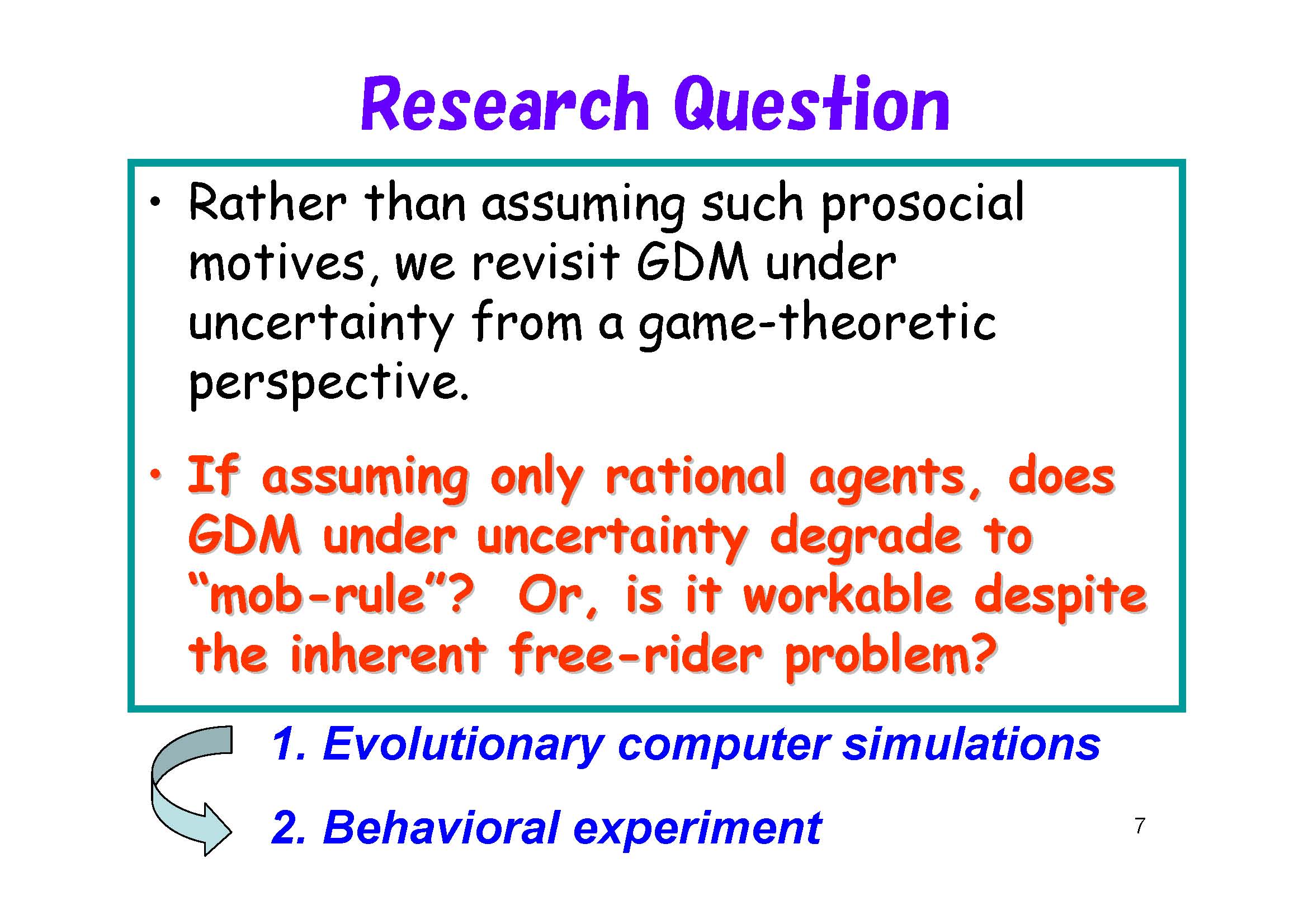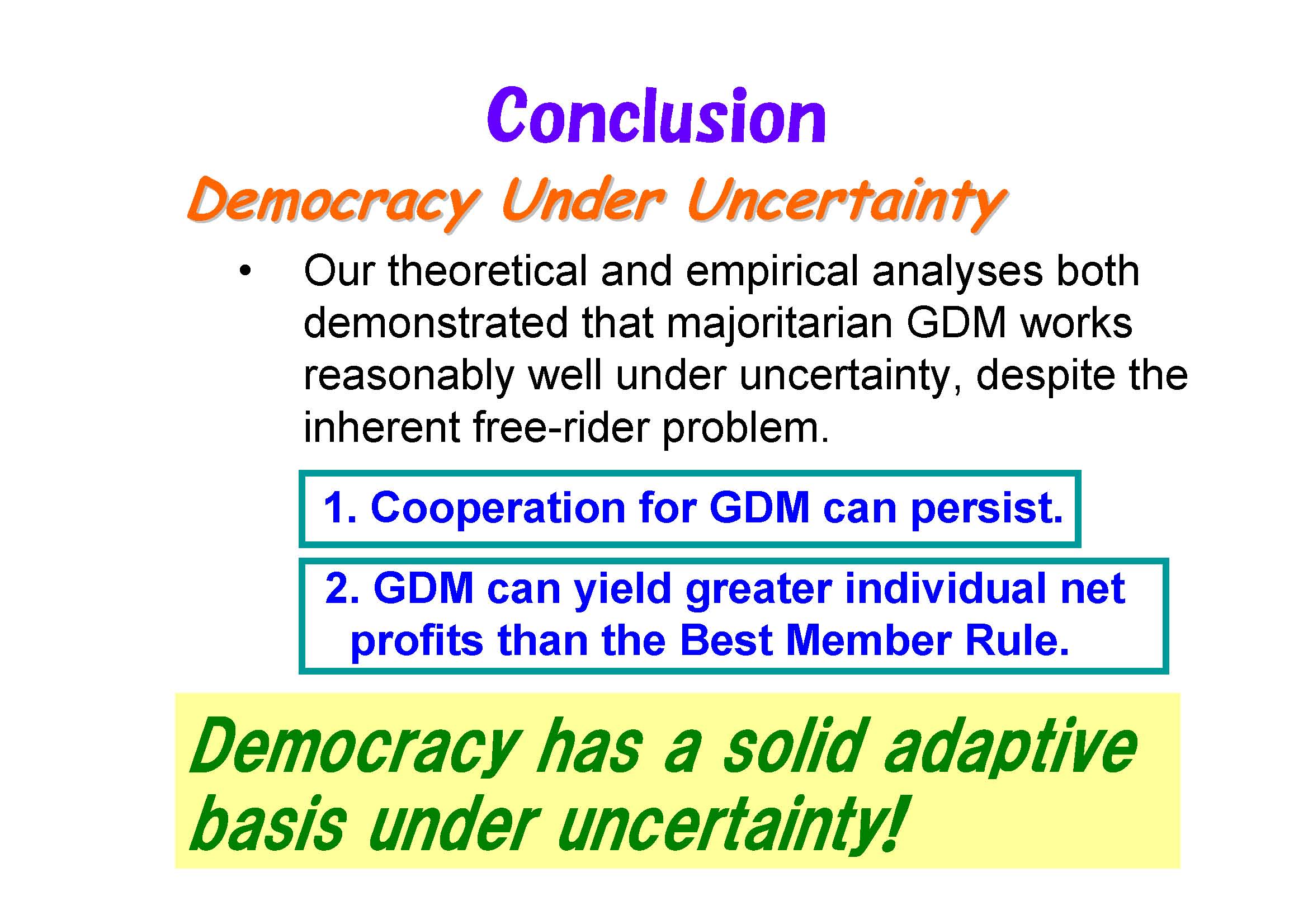



Tatsuya Kameda
(Hokkaido University)
Democracy under uncertainty: Adaptive robustness of group decision-making
beyond the voter's pradox




Every human society relies on groups, ranging in size from families to electorates, to make important decisions. The primary reason we rely so heavily on group decisions is that groups have more problem-solving resources than any individual member. On the other hand, there are many threats to effective deliberation. Perhaps most worrisome, group enterprises frequently require costly investment of resources by individuals and may involve personal risk. Participation in a group activity is, thus, often described as a "sacrifice" of personal utility for a "higher" group goal. This paper explores how group decision-making works when people try to choose the mutually most beneficial alternative in a stochastic, noisy environment. Our question centered on the adaptive robustness of majoritarian group decisions under uncertainty given the inherent free-rider problem. To answer this question, we conducted a series of evolutionary computer simulations and a behavioral experiment with interactive human groups. Results from the simulation and the laboratory experiment both demonstrated that group decision-making could serve as a highly adaptive device; majoritarian group decision-making works well under uncertainty, without demanding sacrifice of personal utility for higher group goals.